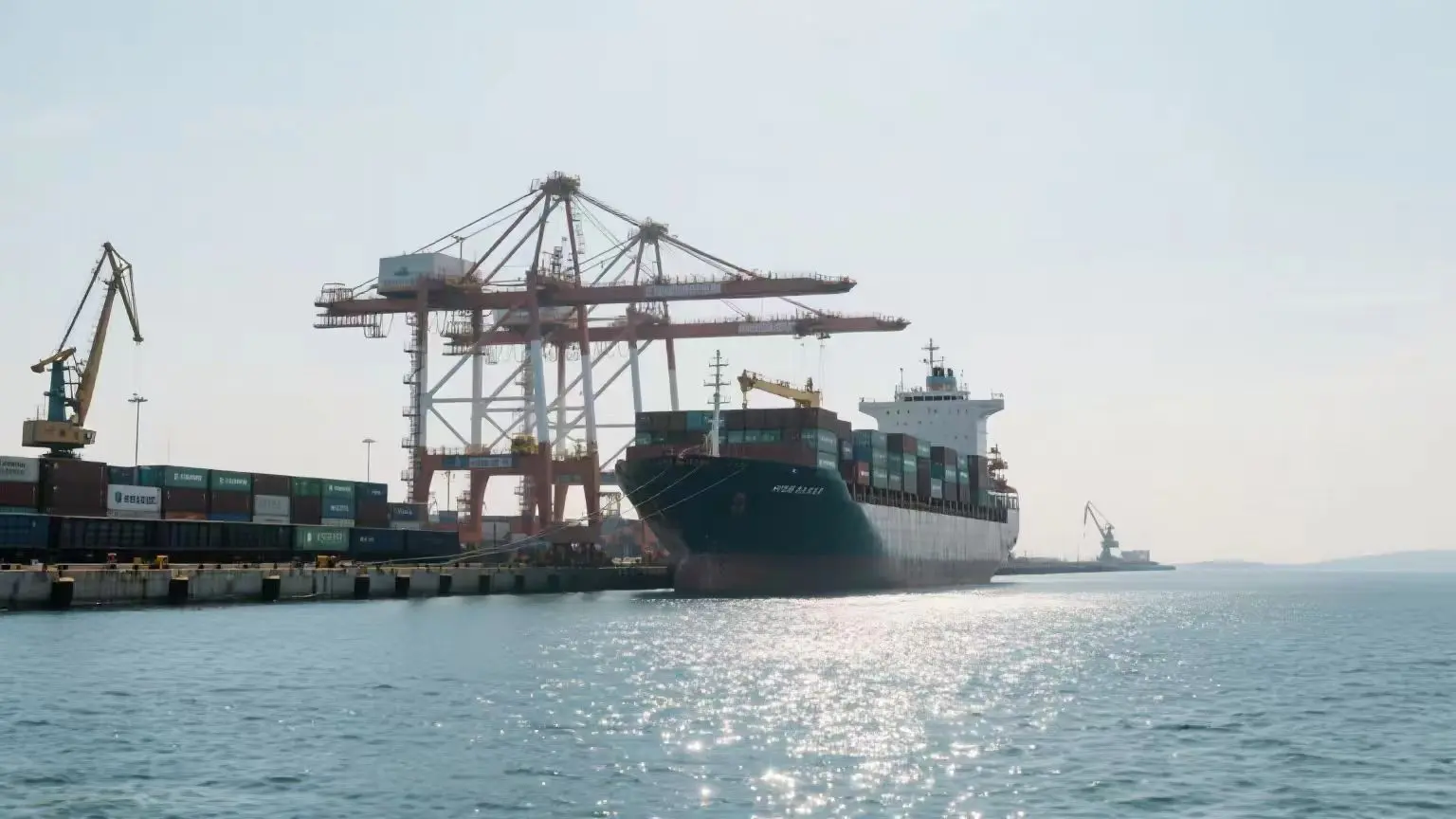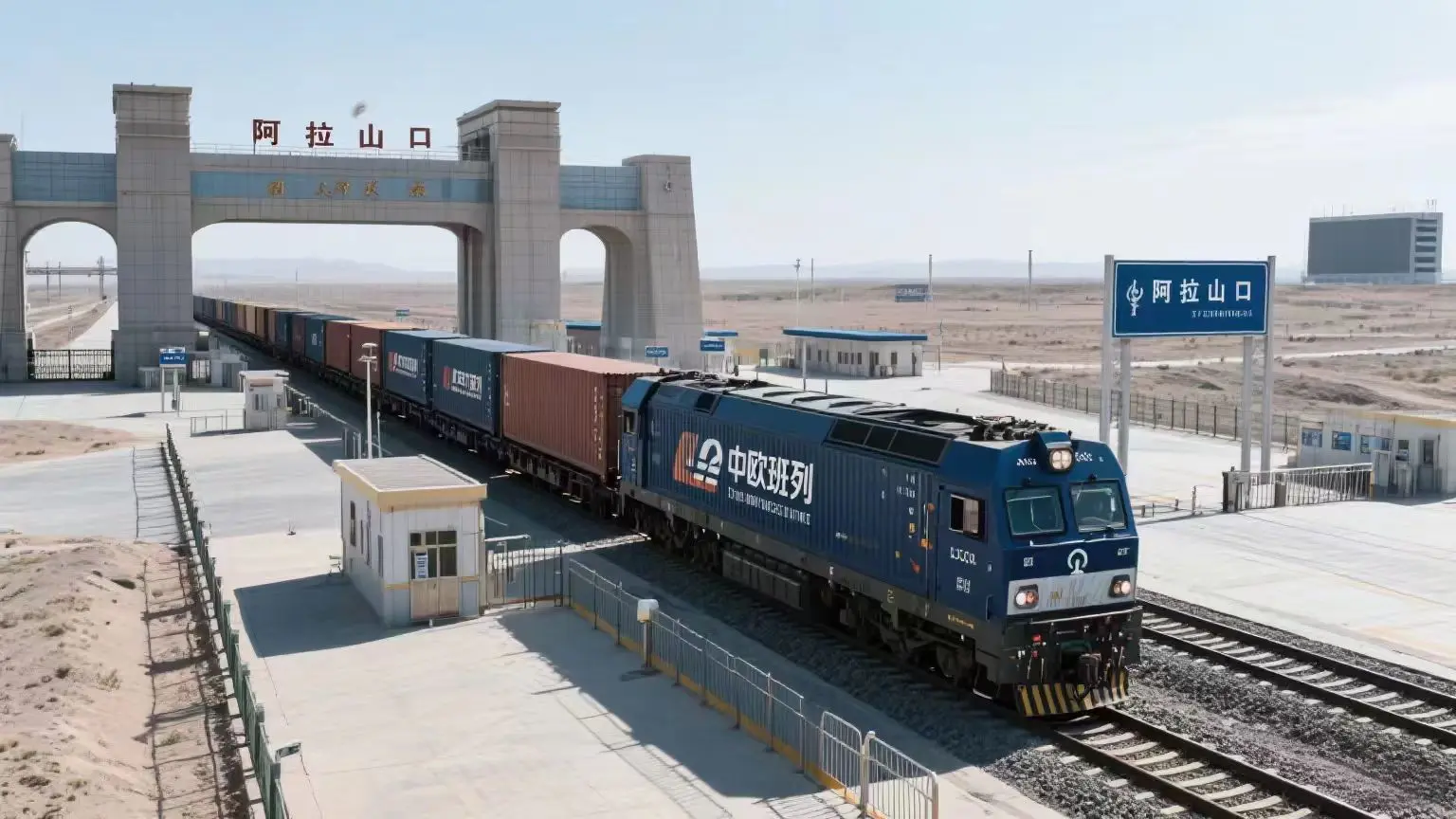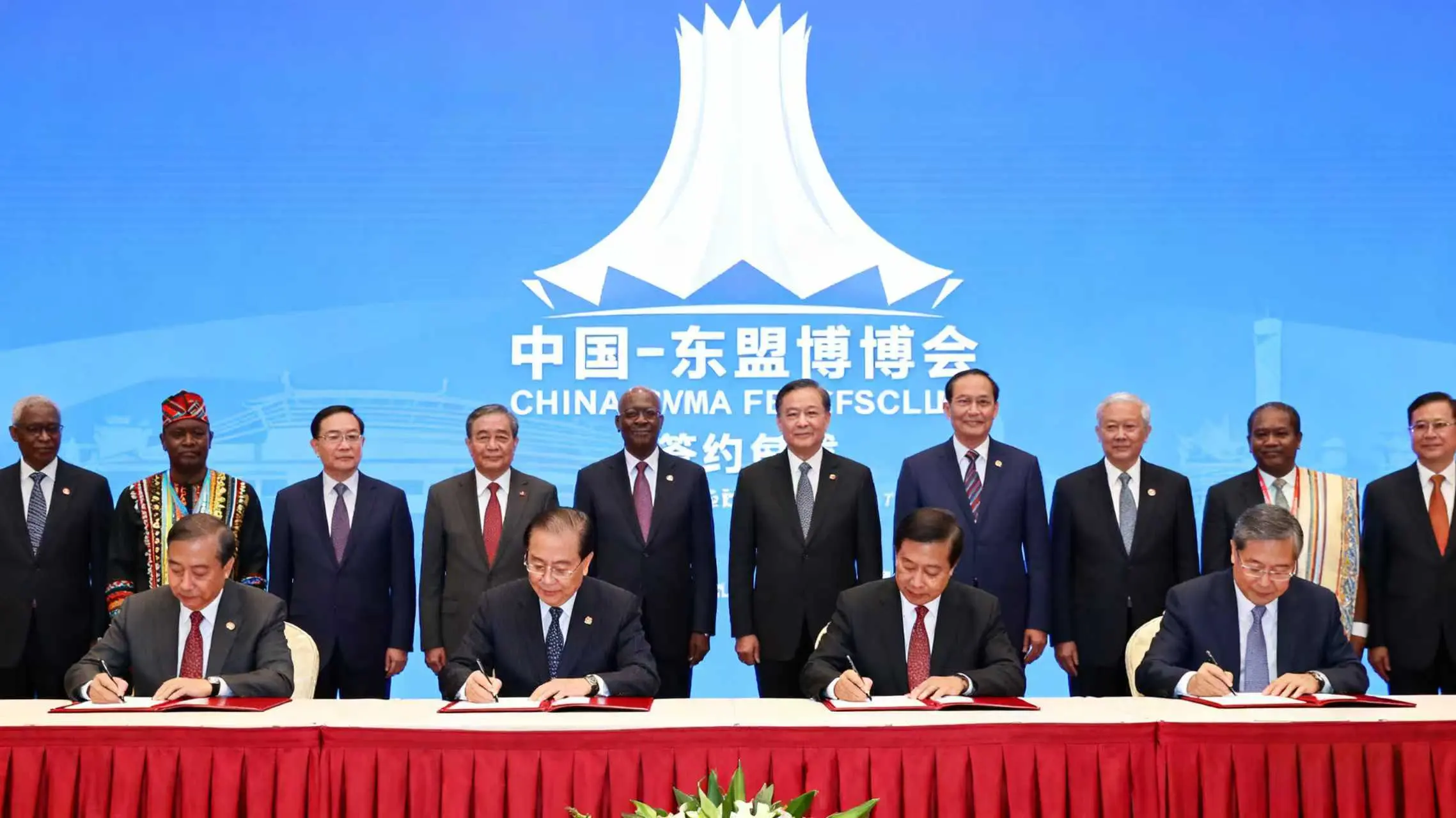China-Europe freight trains significantly reduce travel time via the "Middle Corridor," promoting new developments in Asia-Europe trade.
Xinhua News Agency, Istanbul, August 4th: Enver Úrskurt, Deputy Minister of Transport and Infrastructure of Turkey, revealed at a major transportation industry conference on August 4th that the travel time for China-Europe freight trains departing from China and entering Turkey via the "Middle Corridor" has been significantly reduced to 15 days. This news has attracted widespread attention in the international logistics and trade sectors, marking another significant improvement in the transport efficiency of China-Europe freight trains and injecting new vitality into trade between Asia and Europe.
On the same day, at a grand departure ceremony for China-Europe freight trains in Istanbul, two trains laden with cargo and draped in colorful silks slowly departed Istanbul, bound for Łódź, Poland, and Budapest, Hungary, respectively. Úrskurt explained at the ceremony that one of the trains, departing from Chengdu, carried 508 tons of various goods. It departed from Alashankou in Xinjiang, China, and traveled along the "Middle Corridor" to the eastern Turkish border town of Kars, effectively reducing the journey time to 15 days. Such transport times were previously unimaginable, providing more efficient logistics for trade between China, Turkey, and even Europe.
The "Middle Corridor," officially known as the Trans-Caspian International Transport Corridor, is a strategically important multimodal transport route. Like a giant steel dragon, it originates in China, traverses the vast land of Kazakhstan, crosses the mighty waters of the Caspian Sea, passes through Azerbaijan and Georgia, and ultimately extends to Turkey and numerous European countries. This corridor, utilizing a unique combination of rail, road, and sea transport, is the shortest multimodal trade route connecting China and Europe. Its unique geographical location and transport modes offer the potential to halve freight transport times from China to Europe. This will not only effectively reduce logistics costs but also significantly improve the reliability of trade links between China and Europe, bringing unprecedented development opportunities to countries and regions along the route.

For a long time, the time it took for China-Europe freight trains to enter Turkey via the "Middle Corridor" was unstable, often exceeding 20 days due to a combination of complex factors. Customs clearance efficiency was a key factor. Customs regulations and procedures vary among countries along the route, making it difficult to coordinate inspection and clearance times at various ports. This often results in trains being held up for extended periods at border areas, delaying overall transport progress. Furthermore, weather conditions in the Caspian Sea are a significant variable. The region's climate is complex and unpredictable. Winter can bring severe weather, such as strong winds and heavy snow, disrupting normal ship operations; summer can bring high temperatures and storms, all of which pose challenges to transport safety and efficiency along the Caspian Sea. Extreme weather forces trains to slow down or make temporary stops, significantly increasing transport times.
However, in recent years, thanks to the joint efforts of China, Turkey, and other countries along the route, freight transport efficiency along the Middle Corridor has steadily improved, achieving remarkable results. Countries have actively strengthened policy communication and coordination, streamlined customs clearance procedures, and improved port efficiency. For example, by establishing a regional integrated customs clearance mechanism, facilitation measures such as information sharing and joint inspections have been implemented, significantly reducing cargo hold times at customs. Countries have also increased their investment in infrastructure development. Railway lines are being upgraded to improve track quality and train speeds; port facilities are being expanded and modernized to enhance port loading and unloading capacity and cargo handling efficiency. Furthermore, to address weather issues in the Caspian Sea, cooperation in meteorological monitoring and early warning is being strengthened. Advanced meteorological technology and information sharing platforms are providing transportation companies with accurate weather information in advance, enabling them to rationally plan their transportation and mitigate the impact of weather factors on transport.
Eskult, in an exclusive interview with Xinhua News Agency reporters, could not conceal his excitement. He stated that the reduction in travel time for China-Europe freight trains to Turkey via the Middle Corridor is a significant achievement and a major step forward for China, Turkey, and Europe. He further revealed that the future goal is to reduce travel time from the Alashankou to Kars section to 10 days. To achieve this goal, the Turkish government will continue to increase investment in transportation infrastructure and plans to conduct large-scale upgrades to the railway connecting Kars with other parts of the country to increase its transport capacity and speed. Turkey will also actively strengthen cooperation with countries along the route to jointly optimize transportation processes, improve customs clearance efficiency, and further enhance the competitiveness of the Middle Corridor. China and Turkey have a long and continuously deepening history of cooperation in transportation and trade. As early as 2015, the two countries foresightedly signed a Memorandum of Understanding aligning the Belt and Road Initiative with the Middle Corridor. This landmark initiative laid a solid foundation for cooperation in infrastructure development, trade, logistics, and transportation. Over the years, the two sides have jointly implemented a series of major projects within the framework of the Belt and Road Initiative. For example, in railway construction, they have collaborated on building modern lines, enhancing rail transportation capacity between the two countries. In port development, they have jointly upgraded and renovated relevant ports, improving operational efficiency and service levels. These collaborative projects have not only promoted trade growth between China and Turkey but also injected strong impetus into the prosperity and development of the Middle Corridor.

The reduction in travel time for China-Europe freight trains through the Middle Corridor has had a profound impact on the global trade landscape. Against the backdrop of a complex and volatile international trade landscape, the Middle Corridor, with its efficient and stable transportation advantages, has attracted an increasing number of companies to trade through this route. For Chinese exporters, shortened shipping times mean goods can reach the European market faster, improving product timeliness and market competitiveness, helping them better seize market opportunities and expand their European market share. It also helps reduce inventory costs and capital turnover pressure, thereby improving their economic returns. For European importers, they can receive high-quality goods from China more quickly, meeting market demand and enhancing market supply stability. Furthermore, the development of the "Middle Corridor" has boosted the economic development of countries and regions along the route, creating numerous local jobs and promoting the prosperity of related industries such as logistics, warehousing, trade, and finance. It has also strengthened economic ties and cooperation among countries along the route, promoting regional economic integration.
Looking ahead, with the continuous improvement of transportation efficiency along the "Middle Corridor" and the continued deepening of cooperation among countries along the route in infrastructure development and policy coordination, the development prospects of the China-Europe Express through the "Middle Corridor" will be even brighter. It is expected to become a golden logistics channel connecting China and Europe, making greater contributions to the economic prosperity and trade development of the Eurasian continent. I believe that with the joint efforts of all parties, the "Middle Corridor" will continue to write a glorious chapter, help the "Belt and Road" initiative to move forward steadily, and provide solid support for building a community with a shared future for mankind.










